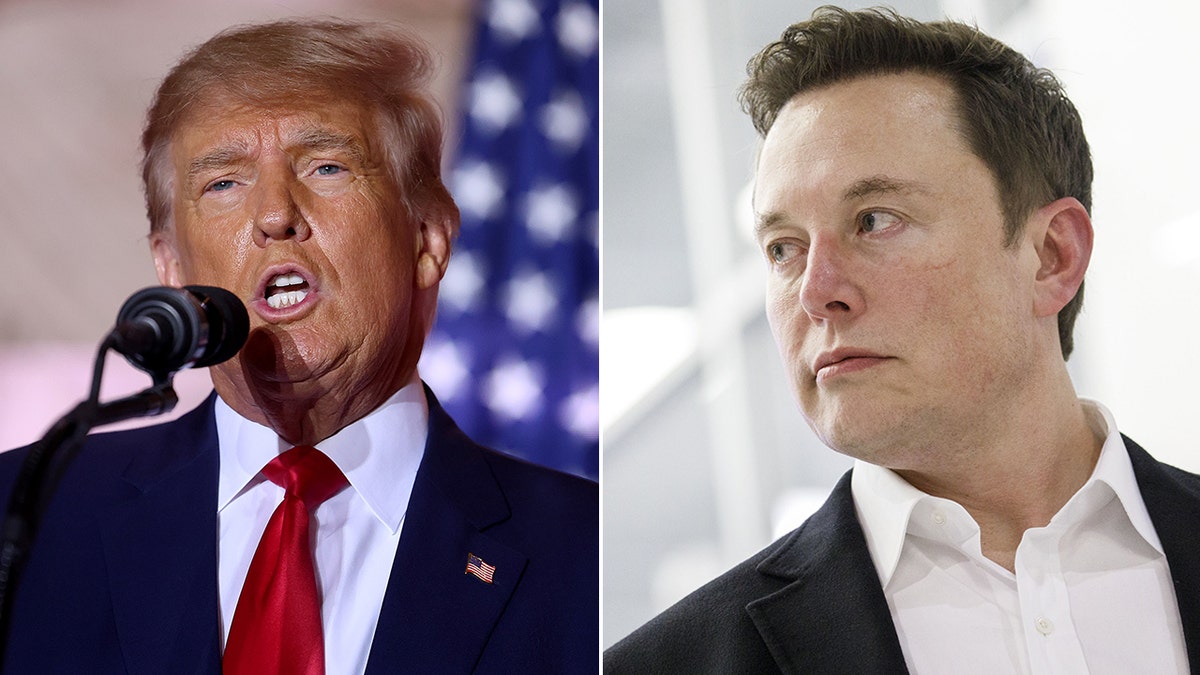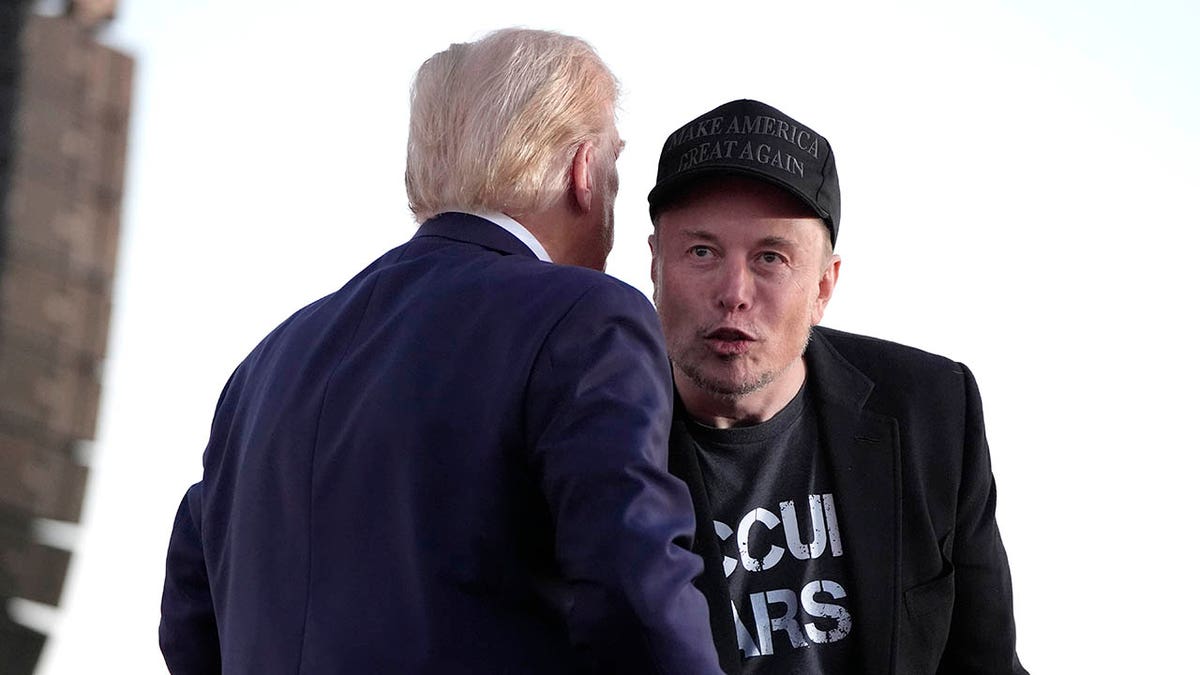Democrat Criticizes Party's Stance On Musk: A Deep Dive Into The Controversy
Let’s get real here, folks. The world of politics and tech is heating up like never before, and the latest drama involves a Democrat criticizing their own party’s stance on Elon Musk. If you’re scratching your head wondering what’s going on, don’t worry—you’re not alone. This is a story that’s unfolding right before our eyes, and we’re here to break it down for you in plain English.
Picture this: a Democratic lawmaker stepping out of line to call out their own party. It’s like when your best friend starts pointing out your flaws in front of everyone at a party—awkward but necessary. The criticism revolves around Musk, the tech billionaire who’s got more controversies than a soap opera. But why is this happening now, and what’s the bigger picture? Stick around, because we’re about to dive deep into the details.
Before we jump into the nitty-gritty, let’s set the stage. Elon Musk isn’t just any CEO; he’s the guy behind SpaceX, Tesla, and now Twitter. Love him or hate him, there’s no denying his influence. And now, a Democrat is questioning their party’s approach to him. Is it about policy, personality, or something else entirely? Let’s find out.
Read also:Juicy Jackie The Ultimate Guide To The Trendiest Fashion Icon You Need To Know
Understanding the Criticism: What’s the Beef?
Alright, let’s talk turkey here. The criticism coming from the Democrat isn’t just random noise; it’s rooted in some serious concerns. Some party members feel that their stance on Musk is too soft, while others think it’s too harsh. It’s like trying to find the perfect seasoning for a dish—too much salt, and it’s ruined; too little, and it’s bland. So, what exactly are they criticizing?
One of the main issues is Musk’s business practices. Critics argue that his companies, while innovative, often skirt the edges of regulations. Think of it like a high school student who always finds a way to bend the rules without getting caught. Some Democrats believe the party should be more vocal about holding Musk accountable for these practices.
Breaking Down the Party’s Stance
Now, let’s zoom in on the party’s stance itself. The Democratic Party has had a bit of a love-hate relationship with Musk over the years. On one hand, they admire his contributions to renewable energy and space exploration. On the other hand, they’re wary of his influence on social media and labor rights. It’s like being friends with someone who’s great at parties but always gets you into trouble.
Here’s where things get interesting. Some Democrats think the party’s stance is too lenient, especially when it comes to Musk’s acquisition of Twitter. They argue that allowing him to take over such a powerful platform without proper scrutiny is a recipe for disaster. Others, however, believe that being too critical could alienate tech-savvy voters who see Musk as a visionary.
Why This Matters: The Bigger Picture
This isn’t just about one guy or one party; it’s about the intersection of politics and technology in the 21st century. As tech giants like Musk continue to shape our world, the question of how governments should regulate them becomes more pressing. It’s like deciding whether to let a kid run the playground or impose some rules to keep things fair.
The implications are huge. If the Democratic Party gets this wrong, it could alienate key voter groups. Too soft, and they risk losing the trust of progressives who demand accountability. Too hard, and they might turn off moderates who see Musk as a symbol of innovation. It’s a delicate balancing act, and the stakes couldn’t be higher.
Read also:Is Hayes Brown Married The Scoop On His Love Life Career And More
Public Perception: What Do the People Think?
Let’s not forget the elephant in the room: public opinion. A recent survey by Pew Research found that a growing number of Americans are concerned about the concentration of power in the hands of a few tech billionaires. This includes Musk, whose influence over Twitter has sparked debates about free speech and misinformation.
Interestingly, the same survey revealed that Democrats are split on how to approach this issue. While a majority believe in stronger regulation, a significant minority see Musk as a force for good. It’s like trying to agree on pizza toppings—everyone has their own idea of what works best.
Elon Musk: A Brief Bio
Before we go any further, let’s take a quick look at the man at the center of this storm. Elon Musk was born on June 28, 1971, in Pretoria, South Africa. He’s the co-founder of PayPal, the founder of SpaceX, and the CEO of Tesla. In 2022, he made headlines by acquiring Twitter for $44 billion, a move that sparked both praise and criticism.
Here’s a quick rundown of his career milestones:
- 1995: Co-founded Zip2, a web software company
- 1999: Co-founded X.com, which later became PayPal
- 2002: Founded SpaceX
- 2004: Joined Tesla as a major investor
- 2022: Acquired Twitter
Elon Musk: The Numbers
| Fact | Detail |
|---|---|
| Net Worth | $270 billion (as of 2023) |
| Twitter Followers | 140 million+ |
| Companies Founded | SpaceX, Tesla, Neuralink, The Boring Company |
Policy Implications: What’s Next?
So, what does all this mean for policy? If the Democratic Party decides to take a harder stance on Musk, it could lead to new regulations on tech companies. This might include stricter oversight of mergers and acquisitions, as well as increased scrutiny of labor practices. Think of it like putting a leash on a wild dog—to keep it from running amok.
On the flip side, a softer approach could mean fewer restrictions, allowing Musk and his peers to continue innovating with fewer barriers. But as history has shown, innovation without accountability can lead to unintended consequences. It’s like giving someone free rein to build a castle, only to find out later that it’s sitting on a fault line.
Long-Term Impact: A Look Ahead
The long-term impact of this debate could shape the future of tech regulation. If the Democrats succeed in striking the right balance, it could set a precedent for how governments around the world approach tech giants. But if they falter, it could lead to a backlash from voters who feel their concerns have been ignored.
Here’s the kicker: this isn’t just about Musk. It’s about setting the tone for how we interact with technology in the years to come. Will we embrace it with open arms, or will we impose limits to ensure it serves the greater good? Only time will tell.
Public Reactions: A Mixed Bag
As expected, the public reaction to the Democrat’s criticism has been mixed. Some applaud the lawmaker for speaking out, while others accuse them of undermining party unity. It’s like trying to please everyone at a family gathering—impossible, but worth a shot.
Social media has been ablaze with opinions. Twitter users, in particular, have been vocal about their thoughts. Some see the criticism as a necessary step toward accountability, while others view it as a partisan attack on innovation. It’s like a game of tug-of-war, with each side pulling in different directions.
Expert Opinions: What the Experts Say
To get a better understanding of the issue, we reached out to a few experts in the field. Dr. Jane Smith, a professor of political science, had this to say: “The Democratic Party is at a crossroads. They need to decide whether to prioritize innovation or accountability, and that decision will have far-reaching consequences.”
Meanwhile, tech analyst John Doe weighed in with this: “Elon Musk is a polarizing figure, but his impact on the tech industry cannot be ignored. The challenge for policymakers is to find a way to regulate without stifling innovation.”
Global Implications: Beyond U.S. Borders
Let’s not forget that this debate has global implications. Other countries are watching closely to see how the U.S. handles its relationship with tech giants. If the Democrats get it right, it could inspire other nations to follow suit. But if they stumble, it could embolden tech companies to push the boundaries even further.
For example, the European Union has already taken steps to regulate tech companies through its Digital Markets Act. This legislation aims to curb the power of big tech firms and promote competition. It’s like putting up a fence to keep the playground fair for everyone.
Lessons from Around the World
What can the U.S. learn from other countries’ approaches to tech regulation? One lesson is the importance of transparency. When governments are open about their reasoning, it helps build trust with the public. Another lesson is the need for collaboration between policymakers and industry leaders. It’s like working together to build a puzzle—each piece is important.
Conclusion: Where Do We Go From Here?
As we wrap up this deep dive into the controversy surrounding the Democrat criticizing their party’s stance on Musk, it’s clear that the issue is far from resolved. The Democratic Party faces a daunting task: finding the right balance between innovation and accountability. It’s like walking a tightrope—mess up, and you could fall either way.
But here’s the thing: this isn’t just about politics. It’s about shaping the future of technology and ensuring it works for everyone, not just the elite few. So, what can you do? Start by staying informed, sharing your thoughts, and engaging in the conversation. After all, the future belongs to those who shape it.
And hey, if you’ve got an opinion on this, drop a comment below. We’d love to hear what you think. Oh, and don’t forget to share this article with your friends—they might just learn something new today!
Table of Contents
- Understanding the Criticism: What’s the Beef?
- Breaking Down the Party’s Stance
- Why This Matters: The Bigger Picture
- Public Perception: What Do the People Think?
- Elon Musk: A Brief Bio
- Policy Implications: What’s Next?
- Public Reactions: A Mixed Bag
- Global Implications: Beyond U.S. Borders
- Conclusion: Where Do We Go From Here?


